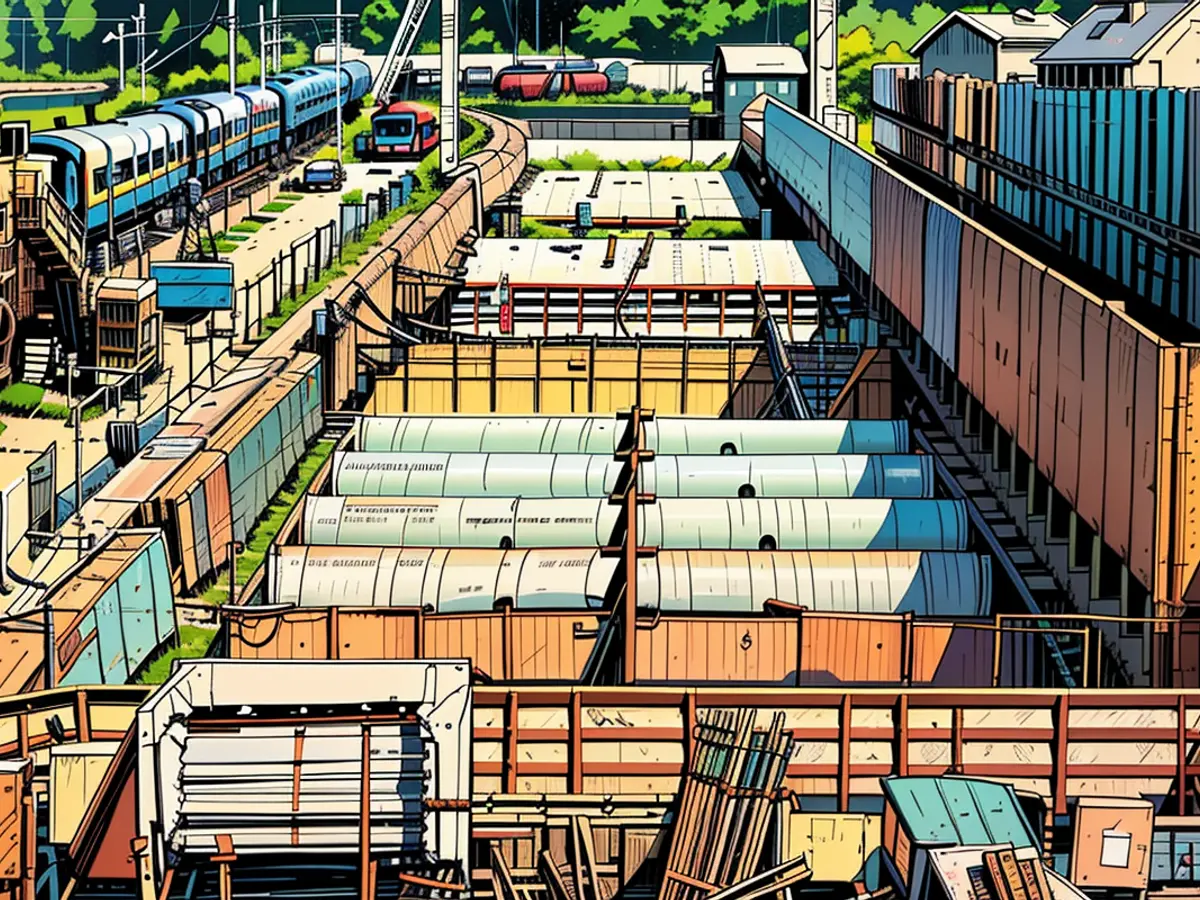- Railway disruption looms in Rhine Valley due to potential rerouting of freight trains.
Following complications with passenger traffic during the suspension of the Rhine Valley Railway, the Freight Railways Association voiced concerns over the "disorganized operations". The proposed re-routing of up to 37 freight trains daily via France for a three-year stretch was halted due to a lack of coordinated supervision, resulting in congested tracks in Wöhr, according to a statement released on Friday evening. A railway representative stated on Saturday that DB Cargo, along with Captrain (France) and SBB Cargo (Switzerland), had successfully cleared all obstructed trains.
The Rhine Valley Railway serves as one of Europe's most significant freight railway corridors, transporting goods between North Sea ports, major western German industrial regions, Switzerland, and northern Italy's urban areas. This is the first time a re-routing plan has been put in place for a three-week full closure due to maintenance work since August 9, which the freight railways had previously commended.
"Wöhr should be treated as a priority concern"
Business manager Peter Westenberger later voiced criticisms, stating: "There is no evident division of responsibility between the central and regional levels when it comes to operational management at the infrastructure operator DB InfraGo, based on our examination." Despite an initial smooth operation of the first few days, the new strategy is now faltering as the volume of rail traffic increases towards the end of the summer holidays. "Wöhr should be treated as a priority concern," Westenberger insisted in the statement.
The spokesperson elaborated that the new re-routing strategy, involving a diesel train shuttle service in Alsace, does not possess the complete capacity of the electrified, double-track Rhine Valley Railway. However, it offers a "flexible solution that we are consistently improving". DB Cargo can run more than 220 urgent container trains on this route despite the full closure. Nine European freight railways and infrastructure operators are collaborating to introduce the re-routing for the first time, the spokesperson added.
Issues with substitute traffic as well
During the three-week full closure, which concludes on August 30, work is scheduled for linking the southern end of the tunnel in Rastatt to the track network, as well as for the maintenance of switches, signal boxes, and signaling systems, according to Deutsche Bahn.
For passenger traffic, substitute transportation has been arranged in the form of buses between Baden-Baden and Rastatt instead of re-routing. In the beginning, there were insufficient buses, and passengers expressed dissatisfaction with inadequate signage to guide them towards the substitute transportation. Deutsche Bahn appealed to the city of Baden-Baden for assistance. The fire department and the German Red Cross were present and provided waiting passengers with water in the sweltering summer heat.
The need for better coordination in the re-routing plan was highlighted after congested tracks in Wöhr, leading to calls for Wöhr to be treated as a priority concern. Due to the lack of complete capacity, the new diesel train shuttle service in Alsace serves as a flexible, yet improvable, solution for the re-direction of freight trains.








